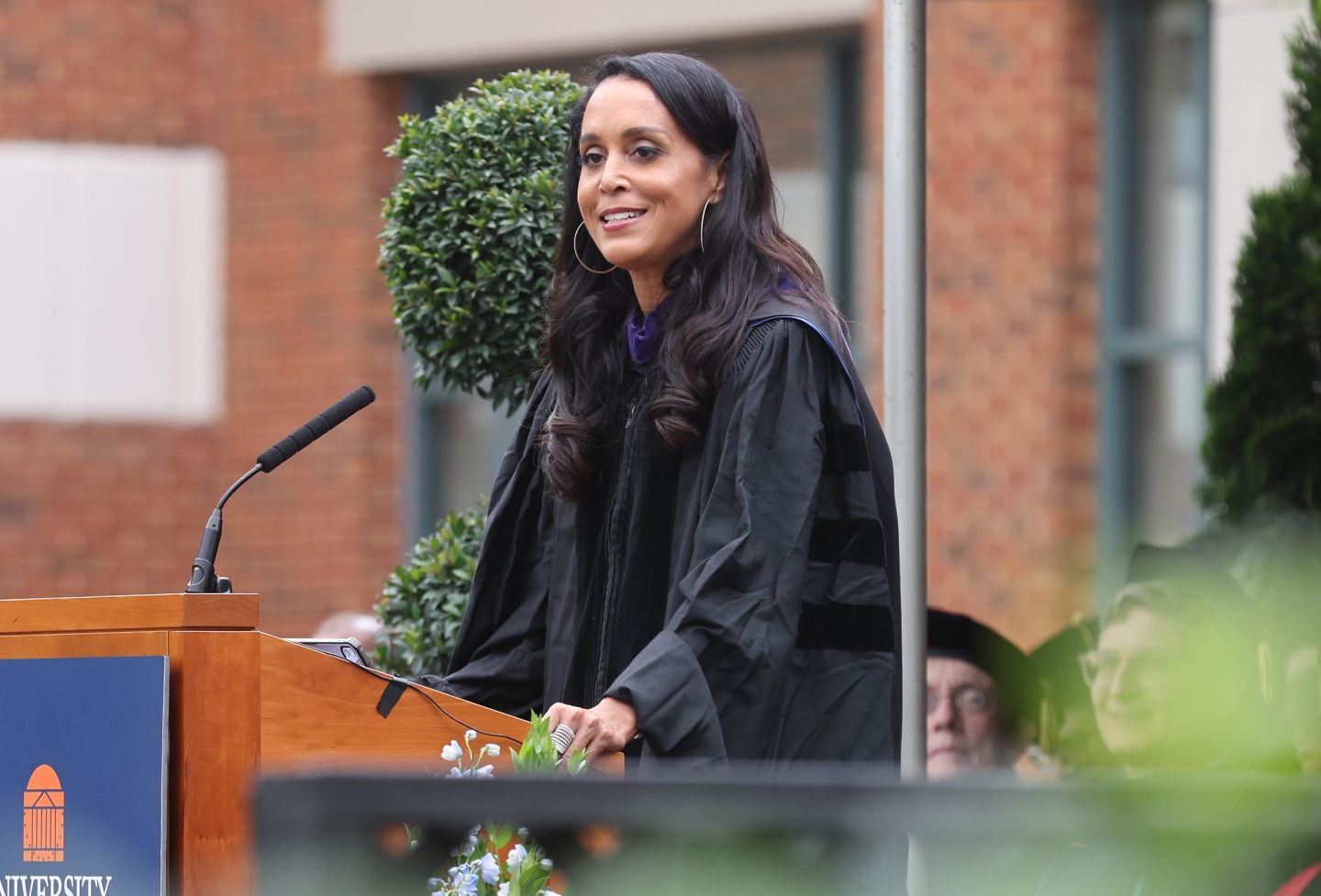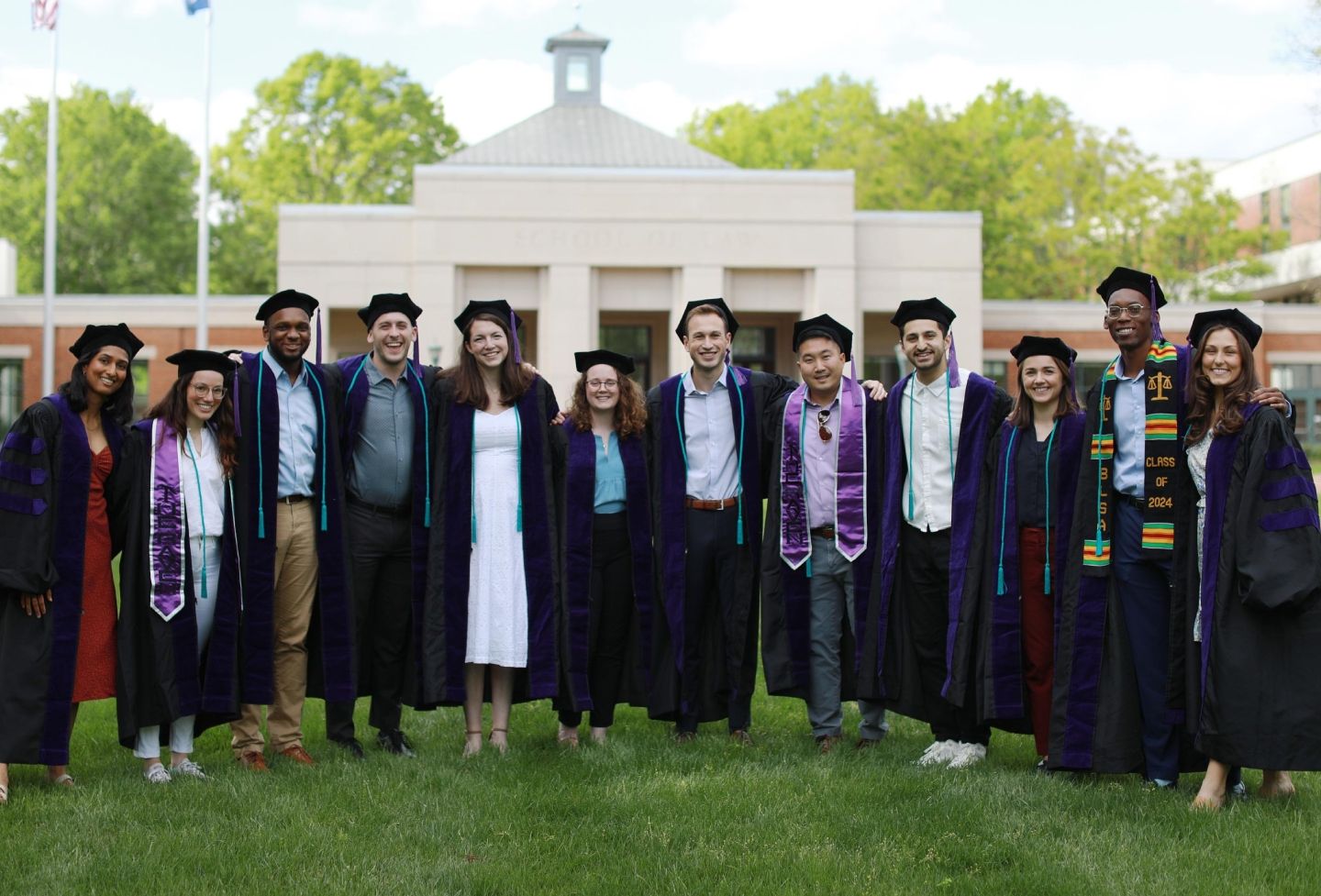Cate Stetson ’94 has made 100 arguments before the U.S. Supreme Court and other appellate and district courts across the nation. On Monday she’ll make a different kind of appeal, welcoming students in the Class of 2022 to her alma mater, the University of Virginia School of Law.
Stetson is a partner at Hogan Lovells, where she co-directs the firm’s Appellate Practice Group and serves as an elected member on the global board.
What do you like about your job? How do you see your work, your leadership of the practice and your role on the firm’s board as relating to each other?
What I love about my work is that I get to be a generalist — a rare thing these days. I handle the legal gamut, from constitutional issues to complex regulatory appeals to patent appeals to habeas appeals, on behalf of all sorts of clients, from multinational companies to death-row prisoners. As for my various roles at the firm: I think each role, at any one time, draws on a facet of all good lawyers’ core skill set: Advocacy. Persuasion. Mentoring. Emotional intelligence. The ability to have hard conversations. Even after a considerable length of time doing this work, I know that I am still developing as a lawyer, a leader and a mentor.
What do you do to prepare for appellate arguments? How do you keep your cool under fire?
My oral argument preparation involves reams of case law, loads of writing, a lot of pacing around and a cheeseburger the night before the argument.
Keeping my cool under fire has definitely been a work in progress. I have learned, through hard experience, that the absolutely worst thing one can do at argument is to bring too much of your own negative emotion into it. That is the fastest path to losing the logical thread of your presentation. So I try to remember not to take the incoming fire personally, and to always work on persuading, not fighting with, my interlocutors. Sometimes I am more successful at this than other times.
What lessons from your law school days have served you well?
Work hard. Be kind. Raise your hand. Learn people’s names — everyone’s names, including all the unsung people who make the Law School and the building run.
Give us a quick preview of your orientation speech.
A concise but accurate preview:
1. Surprise yourself.
2. Take care of each other.
What advice do you have for law students hoping to become appellate litigators?
Actually, my advice is not to aim right for that — not yet. I am one to talk, but too many early-stage law students think that 1) law school! + 2) moot court! = appellate litigator! There is a wide world out there. Don’t hyper-focus too early. For those students or young lawyers who develop, test and confirm their passion for this work, my advice again might be counterintuitive:
Read non-law stuff. Read good sports writing. (Roger Angell, for example, on baseball.) Read good short stories. (Start with Alice Munro, Lauren Groff, Karen Russell.) Read good long stories for that matter. (Edward P. Jones, Anthony Marra, Rachel Cusk.) Read nonfiction. (Roxane Gay, John McPhee, John Jeremiah Sullivan.) Read good everything, and develop your own voice, style and cadence. Legal writing requires you to work within particular structural frames — but you can be a lively, engaging and inventive writer within that frame.
You are representing Adnan Syed of “Serial” fame in his appeal for a new trial. Why is it important for lawyers to do pro bono work?
Because pro bono work completes us and fulfills us as lawyers and as people. Law school will gift each of you with an incredible and indelible skill: Knowing how to analyze, argue, persuade — and change — the law. You have an obligation to your fellow humans to use that gift for good. And pro bono work gives a gift to you in turn: By far the most fulfilling moments — and the most crushing lows — in my career have been in service of pro bono clients. I wouldn’t trade a single moment of either; the highs and lows come with the territory, and each such moment builds your core and character.
Founded in 1819, the University of Virginia School of Law is the second-oldest continuously operating law school in the nation. Consistently ranked among the top law schools, Virginia is a world-renowned training ground for distinguished lawyers and public servants, instilling in them a commitment to leadership, integrity and community service.


